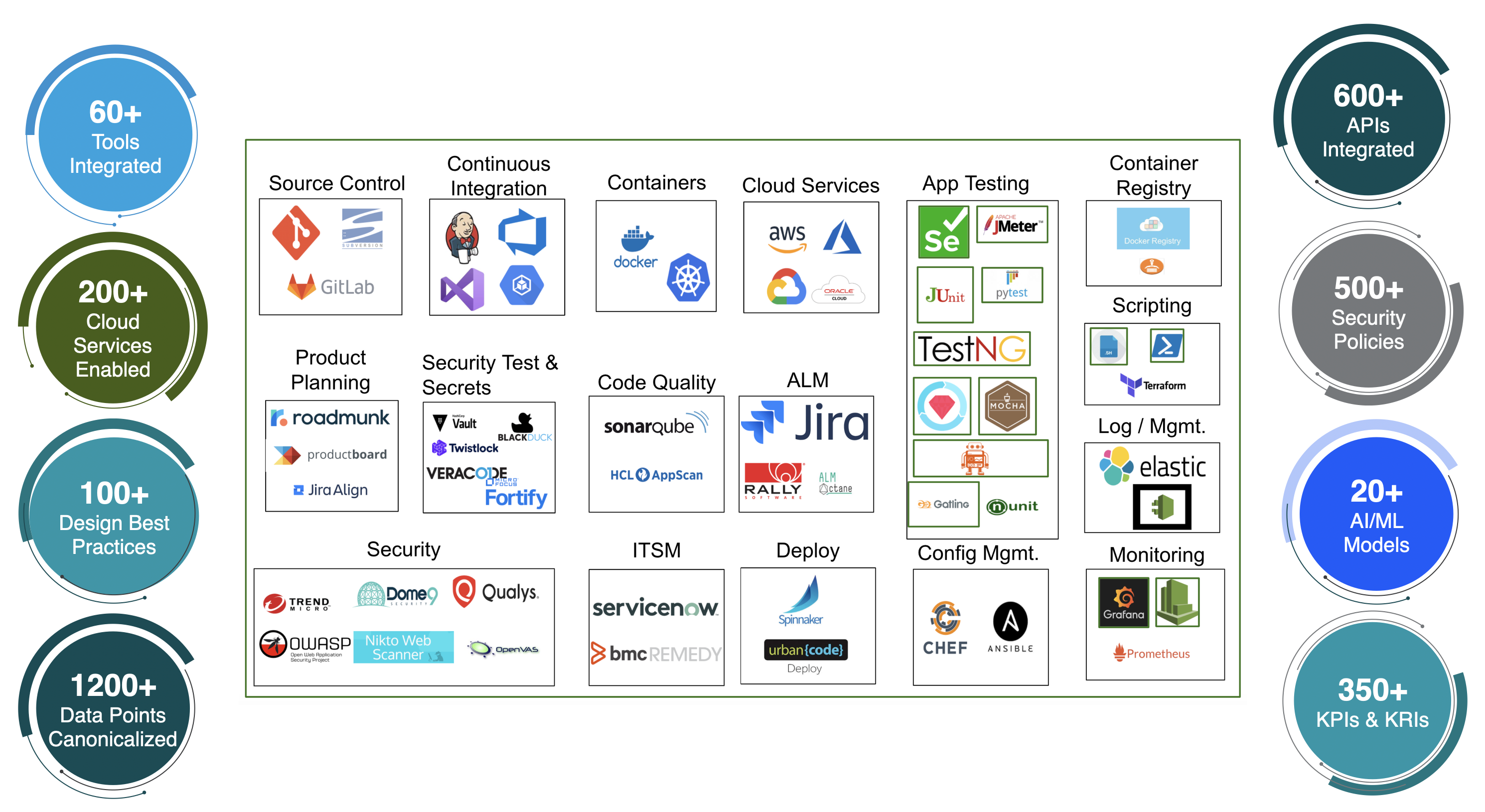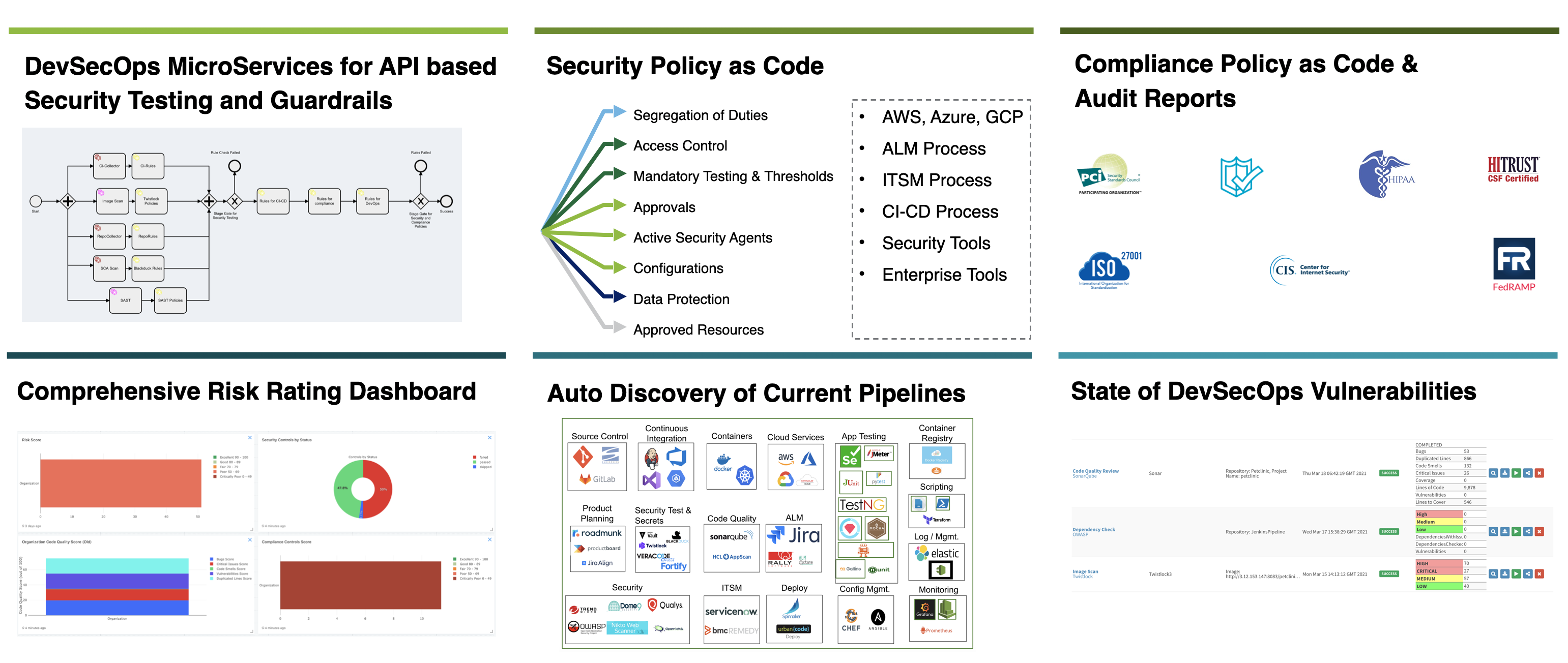DevSecOps as a Service
Today’s Security Leaders are up against these Key DevSecOps Challenges
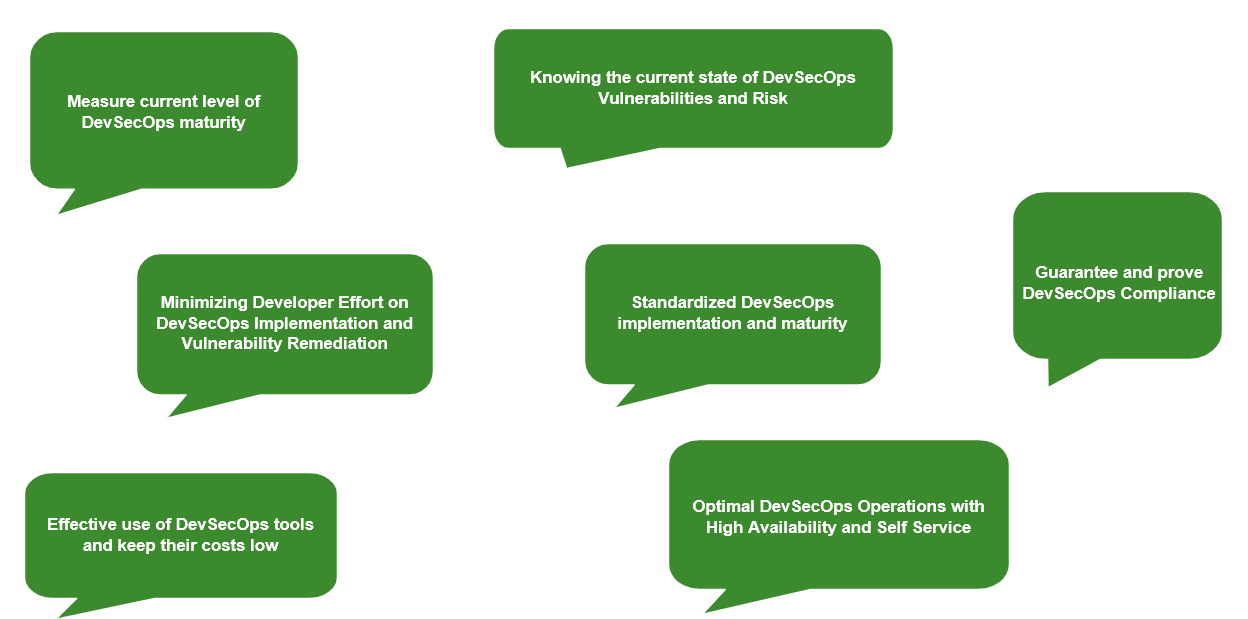
They are Expected to Solve these Challenges by working with these Constraints

Challenge 1: Measure current level of DevSecOps maturity
Kaiburr’s DevSecOps Discovery and Policy as Code engines help answer questions like the following for all Applications in an Organization -
- Which apps (and pipelines) have what scans performed today for Code Quality, SAST, DAST, Image Scan, SCA scan?
- Are the approved threshold applied for each scan?
- Are there specific releases when certain scans were not performed (deactivated)?
- Are the required segregation of duties performed during the code promotion and release process?
- Are only approved features being worked upon, committed and released?
- Are the necessary peer reviews performed on the code?
- Are only approved employees reviewing code?
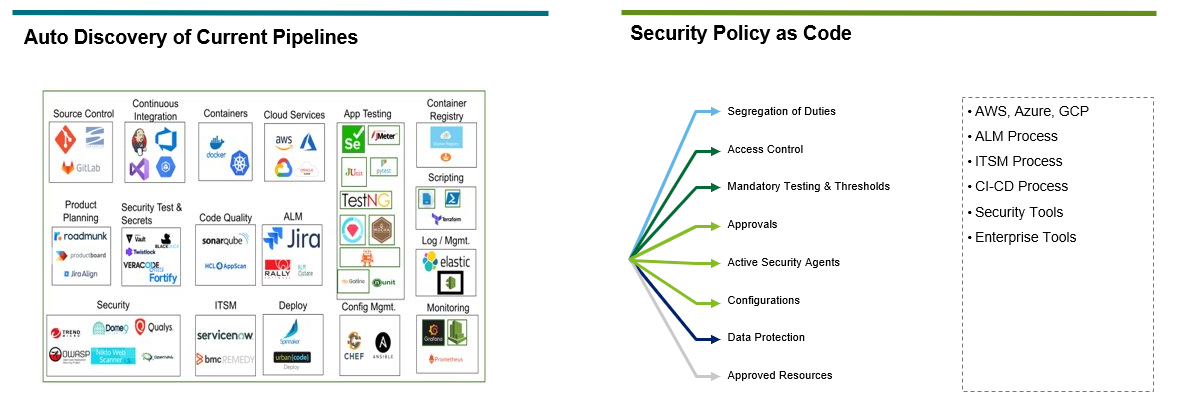
Challenge 2: Standardized DevSecOps implementation and maturity is a long drawn out process
Kaiburr enables accelerated DevSecOps implementation with little to no effort from Application Developers through Simplification of Pipelines in a Micro-services Model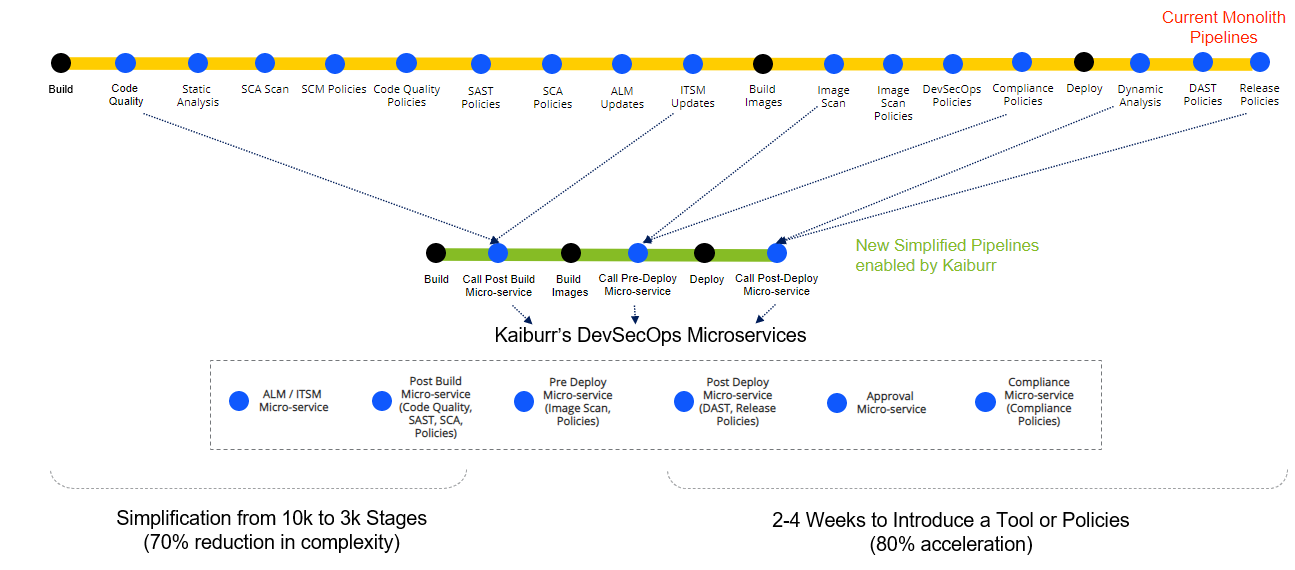
Challenge 3: Minimizing Developer Effort on DevSecOps Implementation and Vulnerability Remediation
Kaiburr’s DevSecOps Microservices help –
- Minimize Developer Effort to just a few lines of CI-CD changes
- Little to no effort required from Developers to learn DevSecOps tools
Kaiburr’s Unified DevSecOps Vulnerability Reports help –
- Developers with a unified view of all vulnerabilities in their applications
- Eliminate the need for Developers to login to different tools for various scan results
- Reduce Developer Effort on False Positive Analysis


Challenge 4: Knowing the current state of DevSecOps Vulnerabilities and Risk is very hard
Kaiburr’s DevSecOps Vulnerability Reports and Unified Risk Dashboards help –
- Application and BU Owners to know precisely the current level of security risk
- DevSecOps, CISOs and CIO/CDOs with the overall Org level security risk and top applications at risk
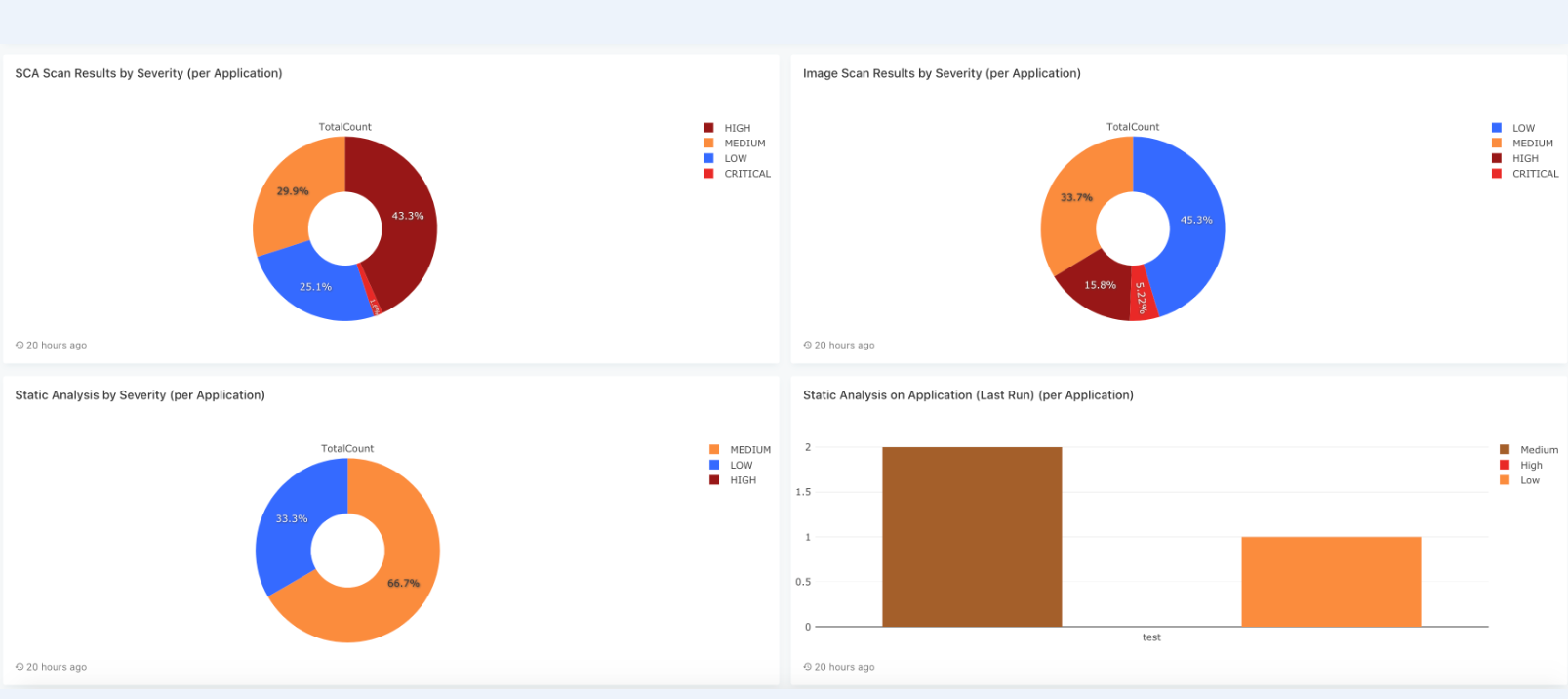
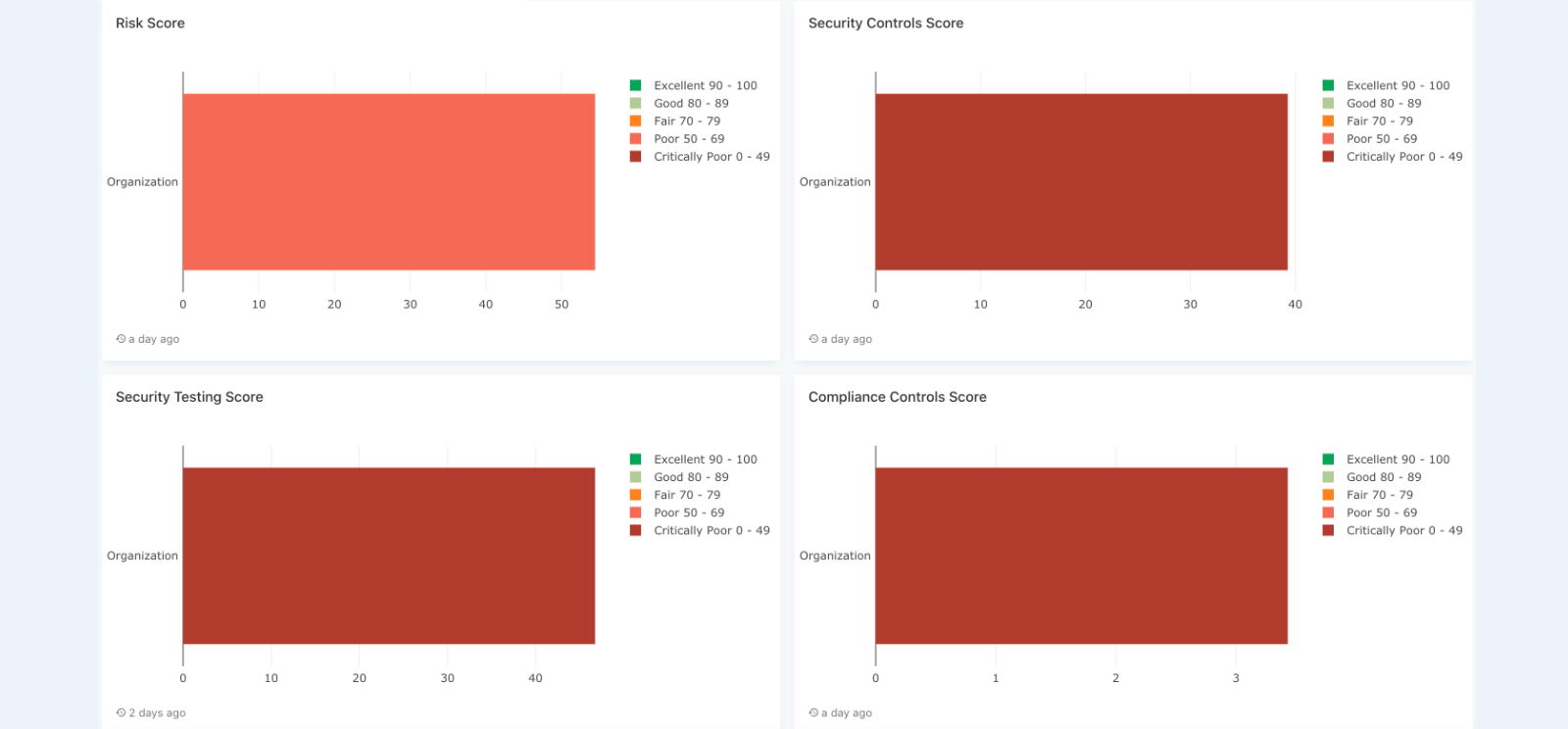
 Challenge 5: It is difficult to guarantee and prove DevSecOps Compliance
Challenge 5: It is difficult to guarantee and prove DevSecOps Compliance
 Kaiburr’s Policy as Code engine helps automate compliance, auditing and to prove Continuous Validation of DevSecOps Coverage in the Organization
Kaiburr’s Policy as Code engine helps automate compliance, auditing and to prove Continuous Validation of DevSecOps Coverage in the Organization
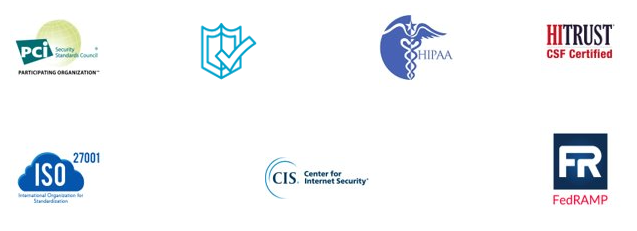
Challenge 6: Hard to enable effective use of DevSecOps tools and keep their costs low
Kaiburr helps optimize DevSecOps tooling cost by –
- Enabling use of both open source and commercial tools based on the Risk Appetite of Apps
- Tracking License Usage of scanning tools so the spend is optimized

Challenge 7: Optimal DevSecOps Operations with High Availability and Self Service is difficult
Kaiburr enables DevSecOps Workflows with a Self Service Catalog –
- Enabling high developer and team productivity in a self service model
- High Availability of pipelines and tools
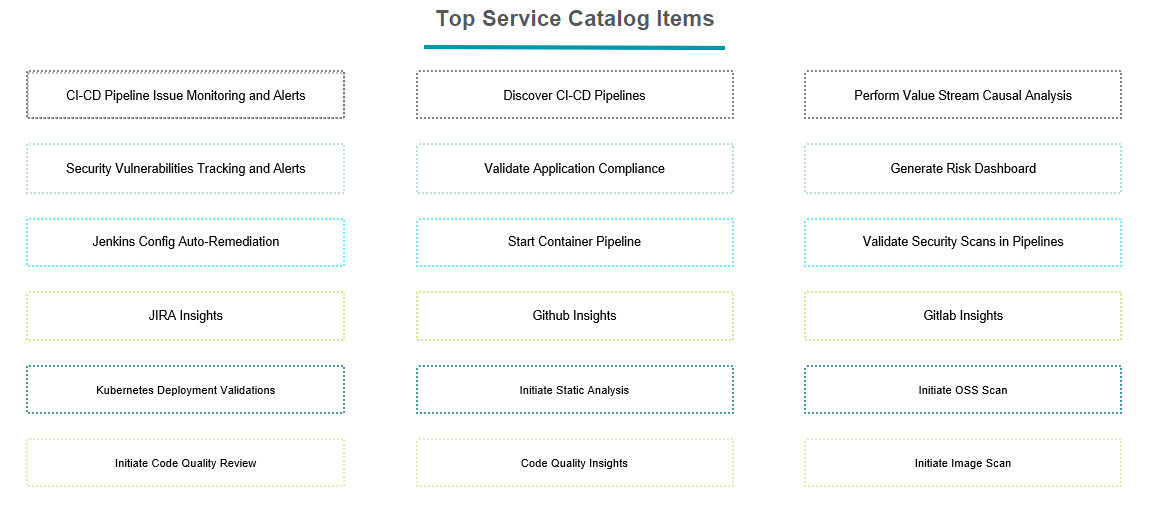
Kaiburr’s DevSecOps Innovations at a Glance
Kaiburr has these out of the box integrations, templates, KPIs, policies, best practices
